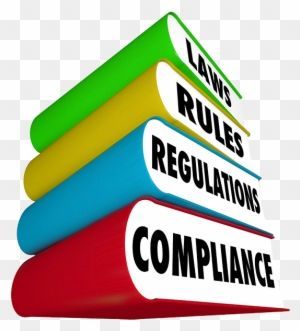
Environmental and regulatory compliance refers to the practice of following laws, regulations, ordinances, and requirements set by governing bodies to protect the environment, public health, and safety. It is essential for businesses, industries, and individuals to adhere to these compliance standards to minimize their impact on the environment and ensure sustainable practices.
The Importance of Environmental and Regulatory Compliance
Adhering to environmental and regulatory compliance guidelines is crucial for several reasons: Environmental Protection: Compliance ensures that actions taken by businesses or individuals do not harm or endanger the environment. It promotes responsible waste management, conservation of resources, and sustainable practices. Public Health and Safety: Compliance regulations aim to protect public health and safety by preventing and controlling hazardous substances, pollutants, and other potential risks. It helps to minimize accidents, mitigate pollution, and maintain a safe working environment. Legal Consequences: Failure to comply with environmental and regulatory standards can result in severe legal consequences, including hefty fines, penalties, and even criminal charges. Compliance is necessary to avoid legal liabilities and maintain a good reputation. Reputation and Trust: Complying with environmental regulations demonstrates a commitment to sustainable and responsible practices. It helps build trust and credibility among customers, stakeholders, and the general public. Competitive Advantage: In an era where consumers are increasingly conscious of environmental and social issues, businesses that prioritize compliance gain a competitive edge. By showcasing their commitment to the environment, they attract environmentally-aware consumers and investors.
Guidance for Achieving Environmental and Regulatory Compliance
Ensuring environmental and regulatory compliance can be a complex task. However, with the right guidance and strategies, it can be effectively achieved. Here are some key steps to consider:
Stay Informed and Updated
It is crucial to stay informed and up-to-date with the latest environmental regulations and compliance requirements. Regularly monitor changes in local, national, and international legislations related to your industry or sector. This can be done through subscriptions to regulatory bodies, professional associations, or by appointing an environmental compliance officer.
Conduct Environmental Assessments
Performing environmental assessments allows you to identify potential environmental risks, measure your environmental impact, and develop strategies to minimize those risks. This involves evaluating processes, operations, waste management, and energy efficiency. The assessment should be conducted by trained professionals and comply with applicable environmental standards.
Develop Compliance Programs
Developing a compliance program tailored to your organization's needs is essential. It should outline policies, procedures, and guidelines to ensure compliance with relevant regulations. The program should be communicated to all employees, contractors, and stakeholders, and regular training sessions should be conducted to ensure awareness and understanding.
Implement Monitoring and Reporting Systems
Monitoring and reporting systems are crucial for tracking and documenting compliance efforts. Implement systems that measure and record factors such as emissions, waste disposal, energy consumption, or any other relevant metrics. This information will help identify areas of improvement, ensure compliance, and provide data for regulatory reporting purposes.
Stay Prepared for Audits and Inspections
Regulatory agencies may conduct audits or inspections to assess compliance with environmental regulations. Having clear procedures, well-organized documentation, and maintaining accurate records ensures a smooth audit process. Regular internal audits are recommended to identify and correct any non-compliant practices.
Promote a Culture of Compliance
Creating a culture of compliance within your organization is vital. Encourage employees to prioritize environmental responsibilities and engage in sustainable practices. Recognize and reward individuals or teams that demonstrate exemplary compliance efforts. By fostering a compliance-focused culture, environmental responsibility becomes ingrained in the organizational values.
The Future of Environmental and Regulatory Compliance
Environmental and regulatory compliance is an ever-evolving field, with increasing awareness and emphasis on sustainability. As the global community continues to address challenges such as climate change and resource depletion, compliance requirements are likely to become stricter. It is essential for businesses and individuals to stay proactive, adapt to changing compliance standards, and embrace sustainable practices throughout their operations. By doing so, they contribute to a healthier environment, protect public health and safety, and ensure a sustainable future for generations to come.
